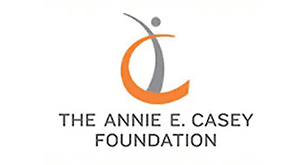Analysis From a State-By-State Survey of Kinship Care Policies
UNDERSTANDING KINSHIP CARE
Kinship care is a critical resource for children and youth who come to the attention of the child welfare system. Kin caregiving has grown significantly over the past 15 years. However, all kinship caregivers do not have access to the same level of support.
Kin bring joy and wisdom throughout a child’s and young adult’s developmental journey. They can help children find their way in the world and support parents during the many ups and downs of parenthood. For families who are experiencing a crisis such as illness, trauma and poverty, often brought on by forces beyond their control kin are an important resource for children and youth. In an ideal world, there would never be a need for children to become involved in systems such as child welfare or juvenile justice because kin would have or receive support and resources to help the family avoid such involvement.
A growing number of kin are stepping up to care for children who come into contact with the child welfare system either to prevent or divert children from entering the formal system, or as licensed or unlicensed caregivers for children in foster care. These placements can increase stability, promote permanent family ties, support mental health, and protect connections to siblings. Kinship care also has helped states reduce the number of young people in group homes or congregate care settings.
THE SERIES
Throughout 2024, the Casey Foundation will release briefs analyzing the 2022 policy survey data to help inform state and federal policymakers and the child welfare field. The series will include data in five policy areas:
- Policies that support licensure of kinship foster parents: Licensing kin as foster parents can open the door to services and financial resources for the caregivers and children. This brief will discuss state policies that promote a quick placement for children with their kin and help facilitate foster home licensure. The survey found that most states have specific policies allowing provisional licensing and waive certain licensing standards on a case-by-case basis. States whose policies already ease barriers to licensing are well positioned to develop and implement new kinspecific licensing standards. However, the survey findings also point to challenges. Not every state provides foster care maintenance payments to provisionally licensed kin, meaning caregivers do not receive funds to cover a child’s basic needs when the child is first placed with them and is in the custody of the child welfare agency.
- Policies that affect unlicensed kinship caregivers: This brief will explore state standards for unlicensed kinship caregivers and services and assistance available to them. The survey showed that unlicensed family caregivers get less financial help than licensed ones. States can address this inequity by adopting the new federal rule so more kinship caregivers become licensed and receive the same rate of financial assistance as non-relative foster parents.
- Policies that govern kinship diversion: In some circumstances, child welfare agencies help facilitate arrangements for relatives to care for children without any formal findings of abuse or neglect or dependency court involvement — a process that some states and communities call kinship diversion. This brief describes the processes required for caseworkers to facilitate such an arrangement while ensuring child safety, and what services and resources are available to children and caregivers. The services available for families in these arrangements vary by state, with most states reporting large disparities in service provision between children with licensed relatives and children in diversion arrangements. The data can inform critical conversations about how to ensure that children in these arrangements remain safe and that caregivers receive adequate information to understand their options and available resources.
- Policies that encourage agencies to engage and partner: By connecting quickly with potential caregivers already in the family circle or the children’s support networks, child welfare agencies can help reduce the trauma children experience when removed from their parents. This brief will explore state policies for locating and partnering with potential kinship caregivers when a child enters or is at risk of entering child welfare custody. According to the survey, states are supporting kin in many ways: All states responding to the policy survey reported they conduct interstate searches for relatives. Twenty-three states require family meetings before a child is separated from parents and 10 notify relatives earlier than the 30-day federal requirement. There are also opportunities for improvement, as only 31 states require caseworkers to ask children or youth at multiple points after removal to identify supportive adults or potential placement options. States also vary in the types of information they require caseworkers to give relatives, such as the process for visiting the child (eight states), the process for calling or writing letters to the child (five states) and the date of the next family team meeting (five states).

